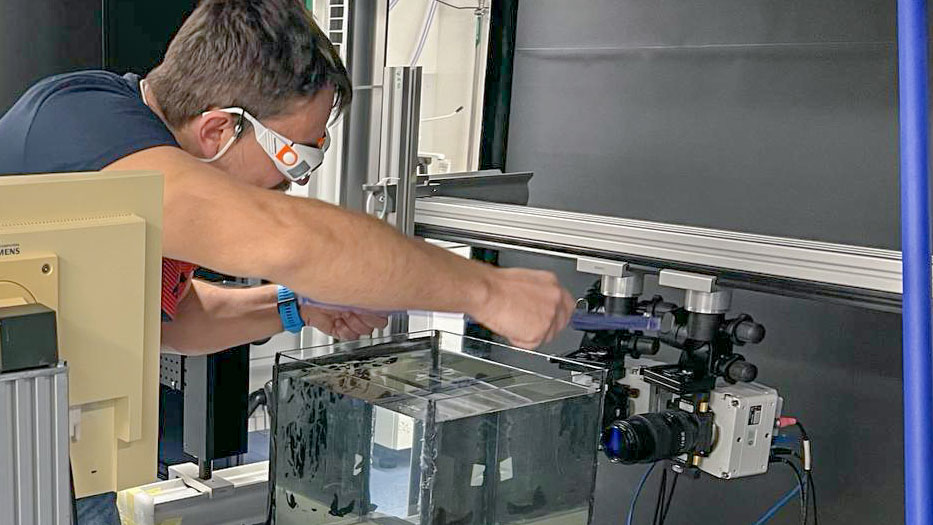The Program
The Master of Science in Nuclear Engineering offers a high level of interdisciplinarity, ranging from nuclear, neutron and reactor physics and radiation protection to thermo-fluid dynamics, reactor safety and materials science.

Nuclear technology, particularly the generation of energy via nuclear fission, is a high-tech sector which involves extremely high levels of refinement of the raw material natural uranium. The entire energy generation chain is very complex, not least because of the comprehensive safety technology and safety culture it entails.
ETH Zurich (D-MAVT) and EPF Lausanne (Section of Physics), associated to the Paul Scherrer Institute, have combined their expertise to offer a Master's Program in Nuclear Engineering addressing the challenges of the sector in the 21st century. The program was launched in 2008 and has been continuously updated since then. It prepares students for the diversity found at the frontiers of research and industrial development in the field of nuclear technology.
You will study, among other things: Nuclear Reactor Physics and Technology, Radiation Biology and Radiation Protection, Nuclear Power Plant Safety and Decommissioning, Fuel Cycle from Uranium Mining to Waste Disposal, Integration of Nuclear Energy into Energy Systems, Principles of Controlled Nuclear Fusion, Nuclear Techniques in Medicine and Industry
Program objectives
The overall objectives of the Master of Science in Nuclear Engineering program are to:
The program equips you with basic and advanced knowledge related to the nuclear fission energy conversion process. Due to the interdisciplinary nature of nuclear science and technology, the program consists of a wide range of subjects, including nuclear and reactor physics, reactor thermal-hydraulics, nuclear materials science, reactor and power plant technology, radiation protection, and nuclear safety.
In the long-term, great expectations are placed on the potential of nuclear fusion as an unlimited source of environmentally friendly energy. As a student in the Master of Science in Nuclear Engineering program you also benefit from the strong background of fusion research at EPF Lausanne. Optional courses in plasma physics and nuclear fusion provide an important complement to the teaching of fission reactor technology.
Nuclear techniques are also prominent in fields other than energy supply. In medicine, there are important applications of radiation and radioisotopes, for both diagnostic and therapeutic purposes. Many research areas benefit from nuclear measurement techniques, e.g. the use of radiotracers, radiographic and tomographic imaging, and analytical methods based on radiation such as synchrotron radiation, neutrons, etc. There are also various industrial non-power-producing applications of nuclear techniques. In many of the above cases, particle accelerators can serve as sources of radiation, often with unique application-specific characteristics.
Sustainability and environmental friendliness, as well as the economic parameters of an energy conversion technology, are to a large extent defined by the characteristics of the fuel cycle. Due to the globalisation of the energy market and the general environmental consequences of energy technologies in general, the supply of nuclear fuel deserves greater strategic attention, even for end-user countries like Switzerland, as waste disposal and other aspects of the fuel cycle back-end represent a major issue for every country using nuclear power.
From the global perspective, nuclear energy is part of an energy supply system based on a mix of primary sources, distribution networks and a wide variety of consumers. Energy supply worldwide must face the challenge of sustainability: the necessity to reduce CO2 emission, the need to find substitutes for decreasing supplies of fossil resources and the drive to increase energy utilization efficiency. The curriculum also addresses complementarities and synergies between nuclear energy, regenerative energies and efficient energy usage as essential contributions to sustainability. Furthermore, you can attend courses from the existing offer of both EPF Lausanne and ETH Zurich that deal with other kinds of energy conversion systems, including renewable energy technologies.
